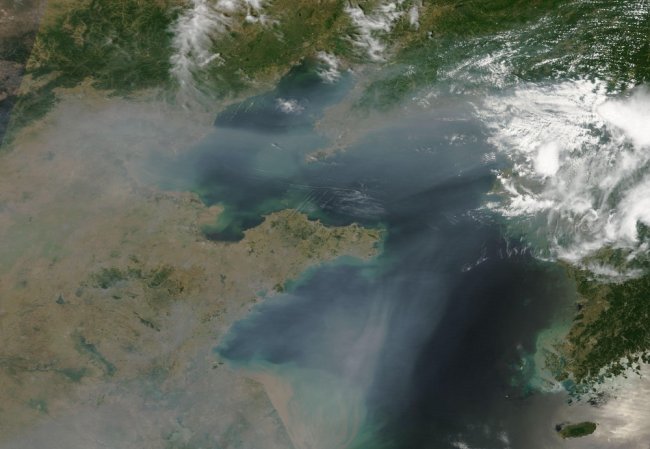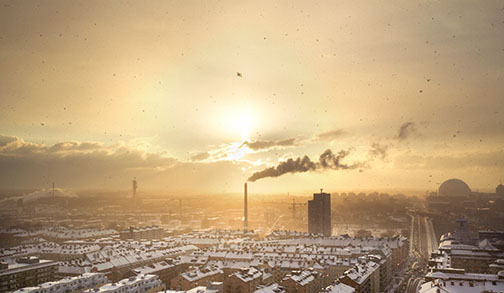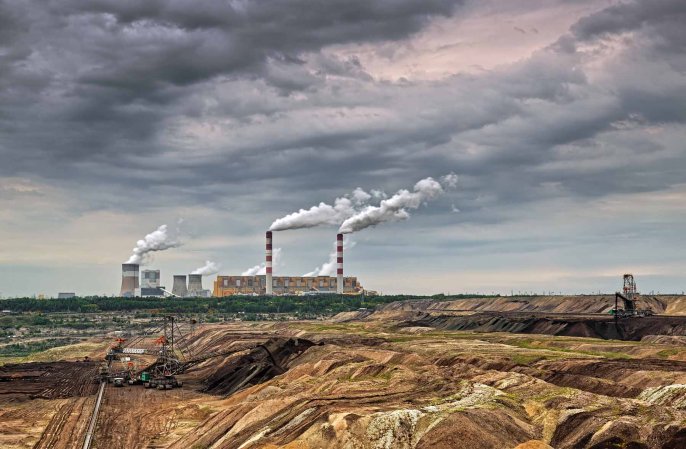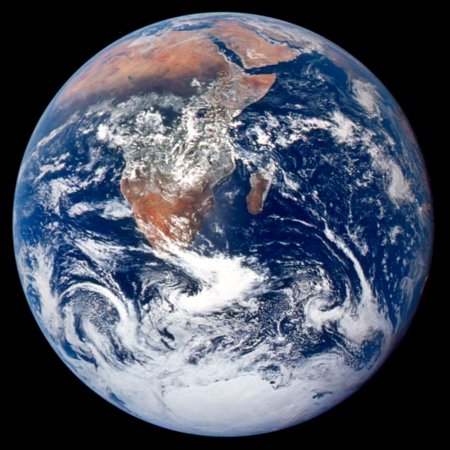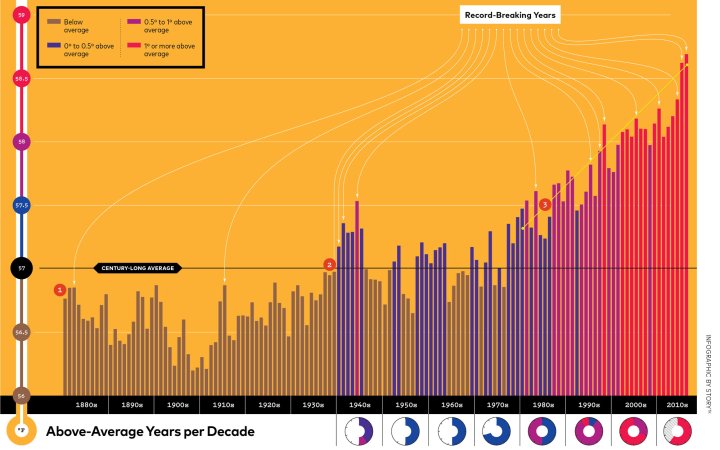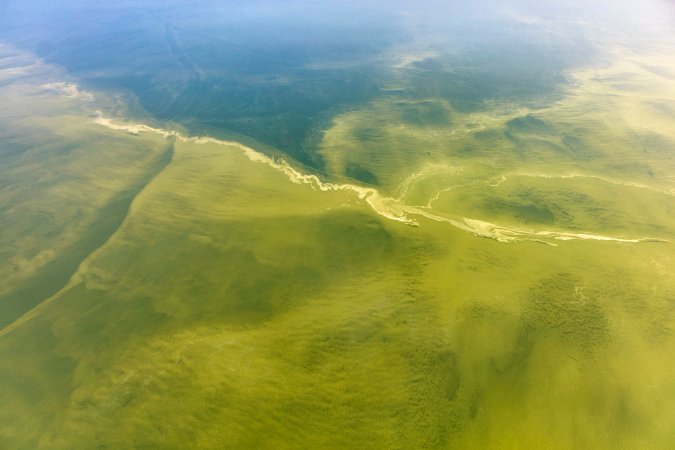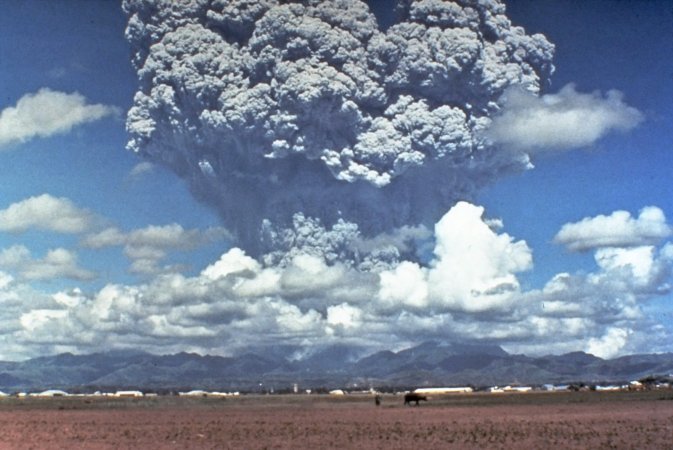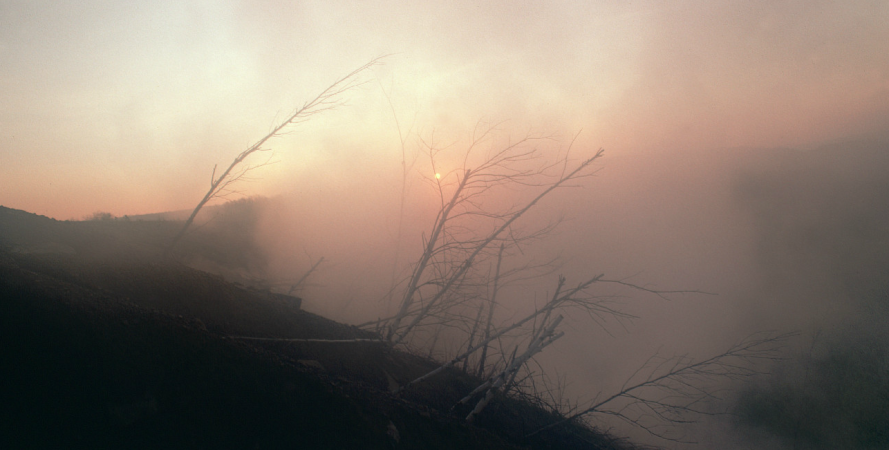

No good deed goes unpunished.
Two papers published in Nature Geoscience today found a strange link between pollution and global warming. Namely, some air pollution—specifically an aerosol called sulfur dioxide—acted as a disguise from global warming for part of the 20th century. Now that we’ve gotten rid of it, temperatures are continuing their ascent unabated.
In the first paper researchers found that the release of aerosol pollutants like sulfur dioxide into the air hid as much as one third of the warming due to greenhouse gases.
Sulfur dioxide is a byproduct of burning fossil fuels. It’s one of the primary components of acid rain. In the United States it is regulated under the Clean Air Act, which limits the amount that can be released into the air.
Sulfur dioxide, while noxious, also reflects heat out of the atmosphere, so while we were emitting large amounts of it in the early 20th century, we were also cooling off the atmosphere by a fraction. It was almost like we had the window open a crack while the radiator was on full blast–the cooling effect of aerosols countered the heat being trapped by greenhouse gases that we were also emitting.
But since we started reducing sulfur dioxide pollution, it’s as though we slammed that window shut. In the second paper researchers found that after taking into account other factors, the reduction of sulfur dioxide in Europe caused temperatures in the Arctic to rise by an average of 0.5°C or 0.9°F since 1980.
To forestall the inevitable smart-ass question: ‘So should we pare back those pesky environmental regulations and start re-releasing sulfur dioxide again to keep greenhouse gases at bay?’
No.
That would be mind-blowingly dumb. Acid rain is vile. Smog is vile. Just ask Beijing.
Some researchers are looking into ways to release particulates high into the atmosphere as a way to give us time to implement more dramatic greenhouse gas reductions. But scientists are still mapping out the links between pollution, weather and climate. There are worries that adding particulates to the atmosphere without a thorough understanding of the process might cause unintended consequences.
The Union Of Concerned Scientists says: “Experimentation with our very complex climate system by dramatically increasing reflecting aerosols carries with it the potential for large unintended, and potentially dangerous side effects on ecosystems, agriculture, and human health.”
